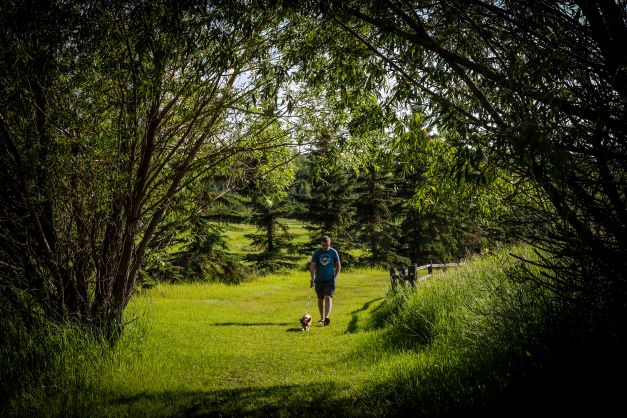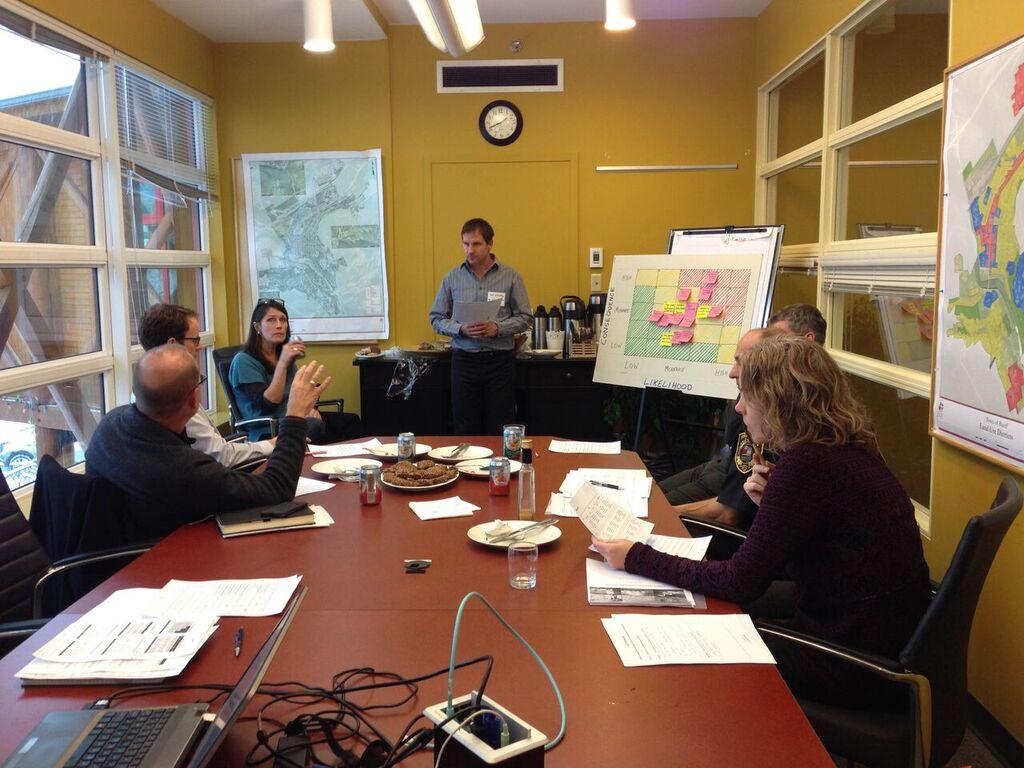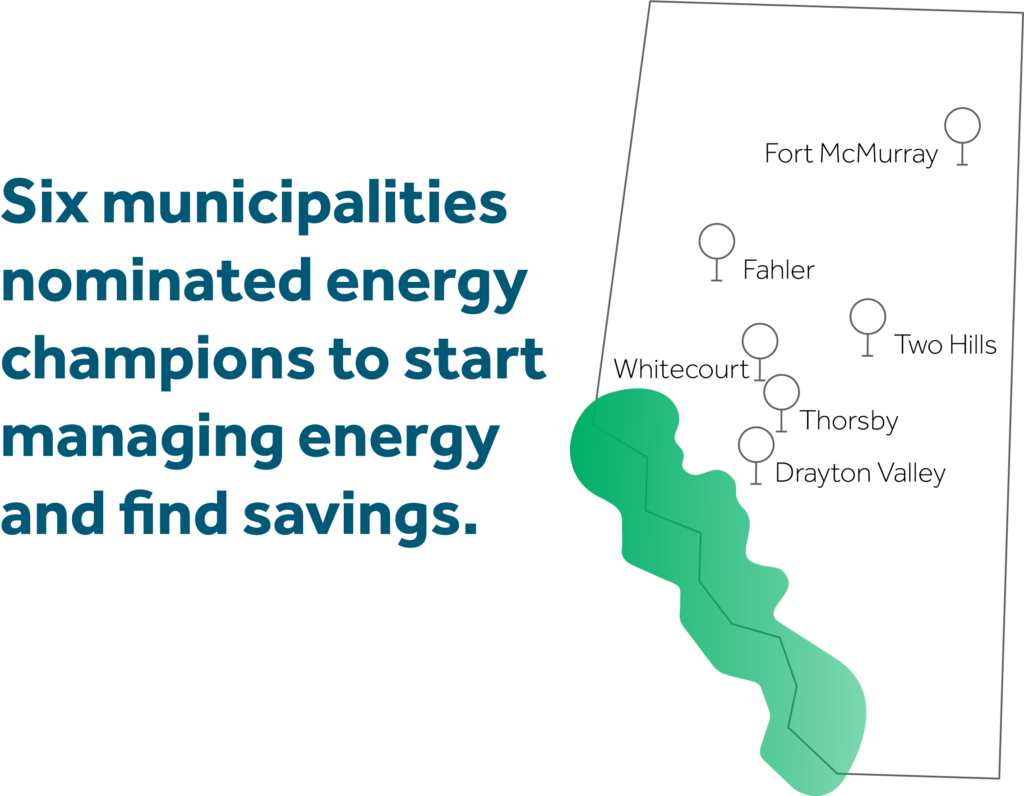Overview
Six municipalities gained valuable, cost-saving insights through the Municipal Energy Champions Pilot Program:
- Brazeau County
- Town of Falher
- Town of Thorsby
- Town of Two Hills
- Town of Whitecourt
- Municipality of Wood Buffalo
Approach
In January 2020, six municipalities started their journey through the Municipal Energy Champions Pilot Program. Municipal staff were identified to take on the Champions role and receive training, technical support, and coaching to build internal capacity and better manage local energy consumption.
Over six months the Champions took part in:
- An energy management basics workshop,
- Collecting energy consumption data,
- Developing an energy profile,
- Conducting energy walkthroughs of municipal buildings, and
- Energy management planning.
Energy Management Basics workshop
In this workshop the Action Centre covered three topics:
- Global trends in energy and GHG emissions,
- Energy basics, and
- Energy management basics.
Champions from the Town of Whitecourt and Falher completed the workshop together.
A second offering of the workshops included the Town of Thorsby, Brazeau County, and the Municipality of Wood Buffalo. The Town of Two Hills had several staff and councilors join for the third workshop offering.
Collecting energy consumption data
Champions received a guiding document on where, when, why, and how to collect energy consumption data. The Action Centre was available to answer any questions and to help Champions make assumptions when actual consumption data was not available.
Developing an energy profile
Champions started to use the energy consumption data to develop an energy profile for their municipality. Champions learned the importance of establishing an annual pattern of energy consumption. They learned various types of energy consumption analysis including:
- Looking at historical performance,
- Demand vs energy costs,
- Comparative analysis between similar buildings, and
- Creating a visual energy consumption systems map.
Conducting energy walkthroughs
Champions received a guidebook and checklist to help complete basic energy walkthroughs of municipal buildings. Due to COVID-19, the Action Centre was unable to visit each municipality to conduct walkthroughs with the Champions. However, the resources provided were used to identify simple saving opportunities and provide a general overview of potential capital improvements.
Energy efficiency implementation planning
Champions completed the implementation planning and continuing success workshop through an online webinar. The workshop covered three modules:
- Municipal energy plans,
- Energy efficiency financing, and
- Funding opportunities.
Lessons Learned
The six Champions offered the following advice to future program participants:
Build an organizational-wide understanding of energy management
Champions were excited to share learnings with their colleagues, supervisors, and municipal councilors. The Town of Two Hills recognized the importance of organizational-level awareness and invited several staff and councilors to participate in the Energy Management Basics workshop. Brazeau County also involved additional staff from Public Works in energy analysis consumption deliverables.
Champions suggest using the program as an opportunity to increase organizational buy-in by increasing the overall understanding of energy management among all staff and council. A general level of understanding builds commitment, the common element of successful energy management. Municipalities should engage key internal stakeholders to formalize senior leadership’s commitment to energy management
Review existing data collection and storage methods
Some Champions found that their accounting, public works, or operations departments had existing energy consumption data information. The Action Centre helped review the established systems for gathering and tracking energy use data.
Getting a head start in energy management by adopting the municipality’s existing process, rather than creating a new data collection spreadsheet can save time. Consider important factors when updating energy-use data, like determining the appropriate level of detail, accounting for all energy sources, and collecting additional facility or operational data.
Networking with participants
Several Champions completed their learning activities together. By connecting with each other, Champions were able to provide insight or their local context to help each other.
Municipality to municipality networking provides a powerful opportunity to create organizational change by sharing knowledge, support, and assistance in solving common problems. Opening the dialogue reminds us that our local solutions are addressing global problems of energy and emissions management.
Results
By the end of the pilot program, participants were able to interpret energy consumption data, and create energy profiles which helped identify future opportunities for energy efficiency and/or renewable energy projects.
Because of COVID-19, not all participants were able to complete all program steps. The Action Centre reviewed which elements of the program were completed and helped each Champion identify follow-up steps. Champions provided feedback on the pilot program, which was used to help frame the next offering of the program.
Although COVID-19 greatly impacted both delivery and participation in the program, participants were able to have a positive experience in the Municipal Energy Champions program.
Here’s what two municipal staff had to say about participating in the program:
“The resources supplied by MCCAC were easy to understand and easy to compile… we were able to reach out to our Climate Change Advisor (Ronak) who was very knowledgeable and able to keep us on track. We were able to determine what information we are collecting and where we have fallen short. We have new ideas on how to do many procedures within the County more efficiently which will lead to developing our strategy moving forward in building out our energy management plan.”
Sandra McIntosh, Economic Development Officer, Brazeau County
“Thanks for the program. I learned a lot about the energy basics from the two webinars, what to look for when assessing opportunities through walk-through and how to profile the energy status of the organization.”
Yonni Lee, Facilities Planner, Municipality of Wood Buffalo.
Interested municipalities are invited to register for the webinar on November 3 or on December 3 to learn more about the program.
Ten municipalities will be selected to participate in the next offering of the program. The deadline to submit an Expression of Interest was December 18, 2020.




You must be logged in to post a comment.